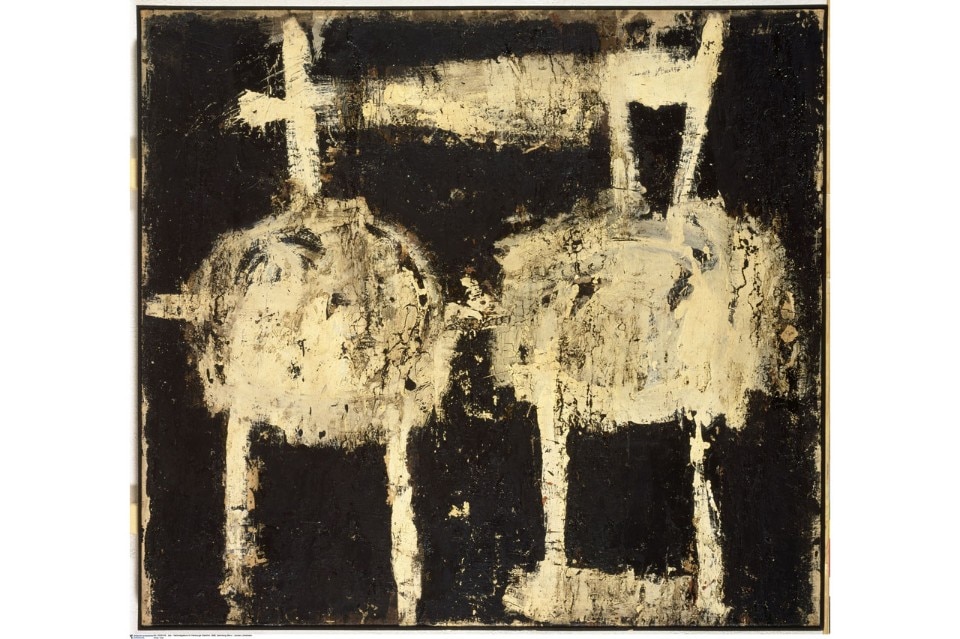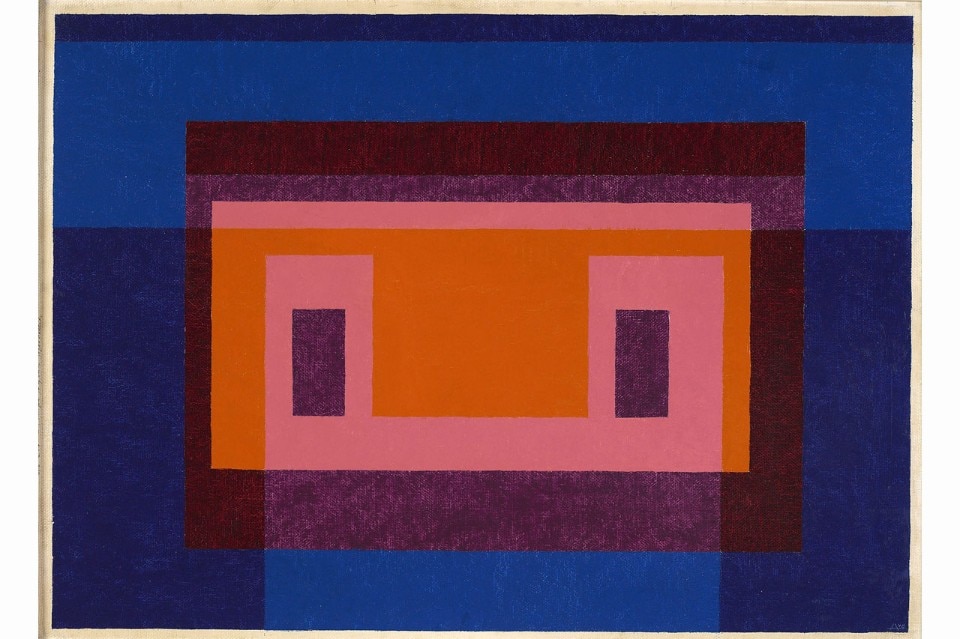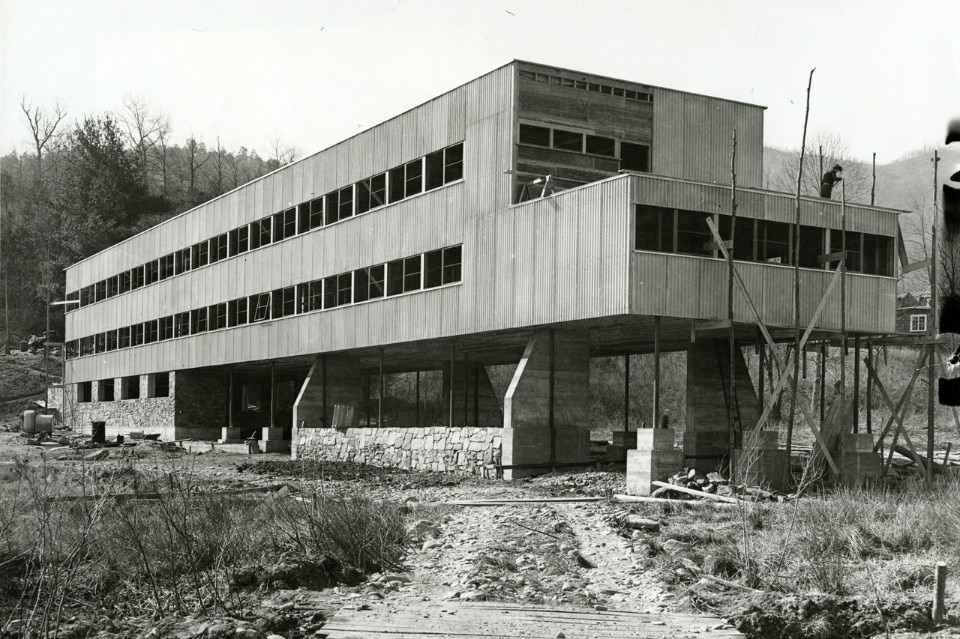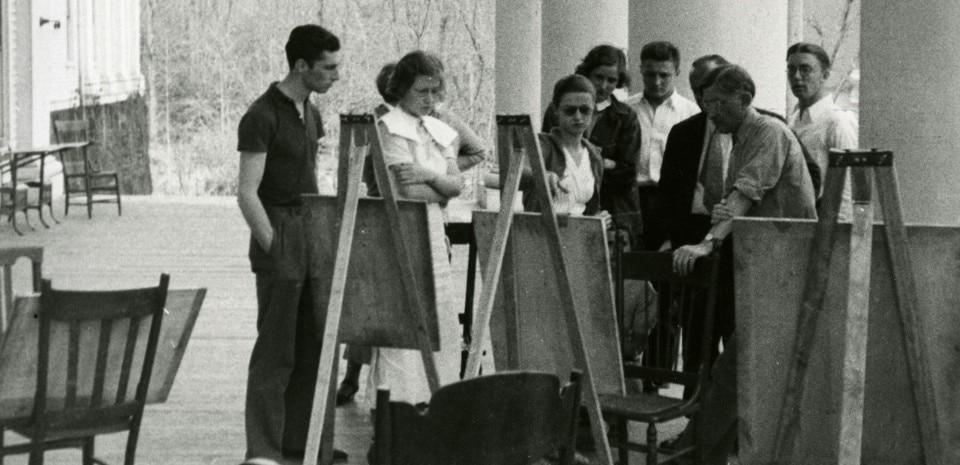College lecturer John Andrew Rice founded Black Mountain as a learning community which, with its progressive principles and methods of education, moved beyond the teaching practices previously standard at colleges and universities.
Black Mountain was conceived right from the start as an interdisciplinary and above all experimental college that promoted collaboration, in line with the forward-thinking educational system proposed by philosopher John Dewey.
Not least thanks to the many leading personalities who taught and studied there, Black Mountain remains a fascinating example of a self-governed and self-sustaining college. Here teaching and learning were able to develop and evolve in an ongoing process of productive exchange. With the show in the Hamburger Bahnhof, Black Mountain College is presented as the successful model of a multi-disciplinary practice for the first time in a museum exhibition in Germany.


The exhibition begins by looking at the influence of the Bauhaus upon the cosmos of ideas at Black Mountain. Among the former Bauhaus members teaching at the College were not only Josef and Anni Albers, but also others such as Alexander Schawinsky and Walter Gropius. At the centre of the exhibition, whose architecture is designed by raumlaborberlin, are selected key events and pioneering artistic achievements that were developed and explored at Black Mountain and which significantly shaped the history of art in the second half of the 20th century.
The exhibition aims not only to offer a historical retrospective but also to spotlight current debates on aspects of the education and training of artists today. Students from various art colleges are invited to present selected archival documents, literary texts and artistic scores within the exhibition itself over the entire duration of the show. The artist and composer Arnold Dreyblatt has specifically created a concept entitled “Performing the Black Mountain Archive” for these readings. Within the framework of a timing schedule drawn up by Dreyblatt, short performances will take place at various locations within the exhibition space.

until September 27, 2015
Black Mountain.
An Interdisciplinary Experiment 1933 – 1957
curated by Eugen Blume, Gabriele Knapstein
research assistant and coordinator: Matilda Felix
Hamburger Bahnhof – Museum fur Gegenwart
Invalidenstraße 50-51, Berlin




